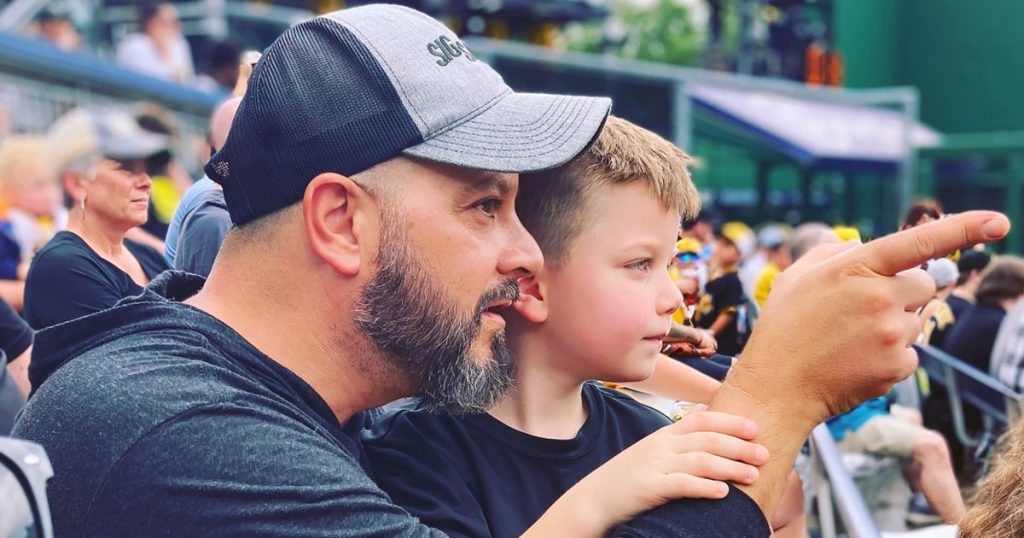Len Barchanowicz, a 45-year-old mailman from Pittsburgh, experienced sharp neck pains last summer that escalated into chest pain and difficulty breathing. After visiting the emergency room, doctors found an orange-sized mass in his chest, which turned out to be a rare type of cancer called thymoma. Initially, Len thought he was facing an emergency surgery, but further tests revealed the true nature of his condition. Despite not displaying the typical symptoms associated with cancer, Len was diagnosed with stage 2 thymoma.
Thymoma is a type of cancer that arises from the thymus gland, a part of the immune system that tends to be more active in childhood. In Len’s case, the tumor was mostly encapsulated but had spread slightly, leading to its classification as stage 2 cancer. The surgical team removed the mass and multiple lymph nodes in October 2023, leaving clean margins and eliminating the need for radiation or chemotherapy. Len will undergo regular chest CT scans for monitoring purposes to detect any potential recurrence of the tumor, as these tumors can sometimes come back years later.
Recovery from the surgery was challenging for Len, who required doctors to crack open his sternum for the procedure. Despite experiencing intense pain, he was able to go home after two days in the hospital. Fortunately, the tumor had not attached itself to major arteries such as the aorta, which could have had serious consequences. By January 2024, Len was back at work and feeling grateful for the care he received from his medical team and the support of his family. He reflects on the suddenness of his diagnosis and expresses a sense of “survivor’s guilt” for overcoming the illness.
Len and his wife, Lauren, wanted to share their story to raise awareness about thymoma and offer support to others who may be going through a similar experience. They felt isolated during the diagnosis process and hope that by sharing their journey, they can help others feel less alone. Lauren, a nurse, played a crucial role in recognizing the seriousness of Len’s symptoms and advocating for medical attention. The couple emphasizes the importance of seeking medical help if experiencing unusual symptoms and partnering with healthcare providers in managing a rare condition like thymoma.
Dr. Ranjita Pallavi, Len’s medical oncologist at Allegheny Health Network, explains that thymomas are often found incidentally and may not present many symptoms. In rare cases, patients may experience chest pain or shortness of breath due to the tumor’s size. Len’s case was unique in that he lacked the typical symptoms associated with cancer, leading to uncertainty in the diagnosis process. Despite the challenges, Len’s successful surgery and recovery highlight the importance of early detection and treatment for rare cancers like thymoma.
Len’s experience serves as a reminder of the unexpected nature of illness and the importance of advocating for one’s health. His journey from experiencing neck pains to undergoing surgery and recovery underscores the resilience of individuals facing rare conditions. By sharing his story, Len hopes to offer support and encouragement to others dealing with similar health challenges, emphasizing the value of early intervention and the power of community in navigating life’s unexpected twists and turns.


